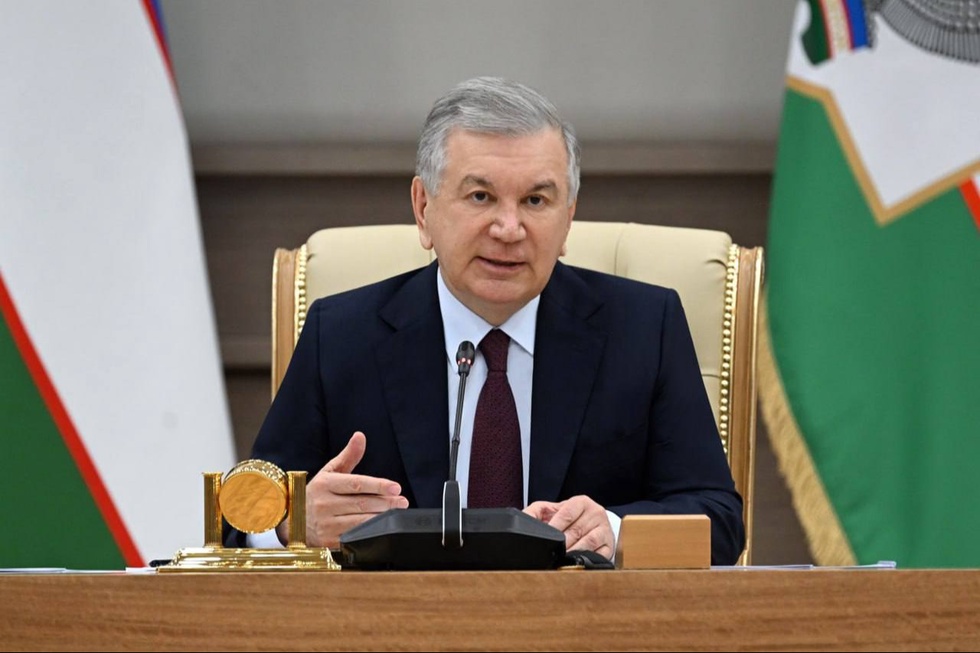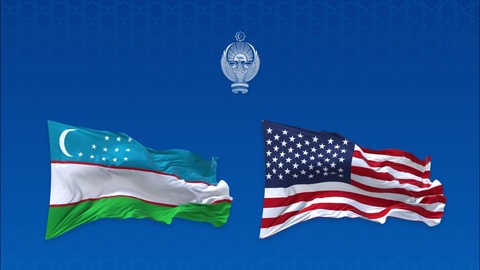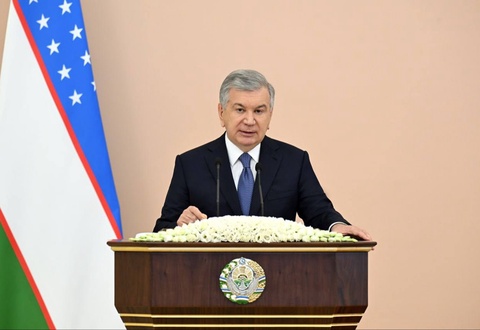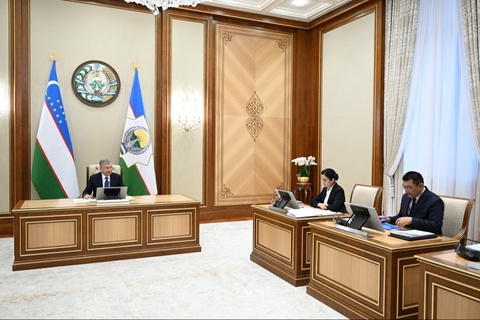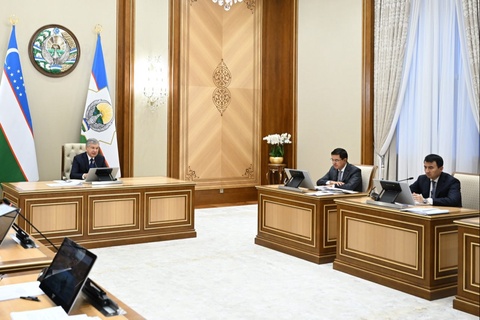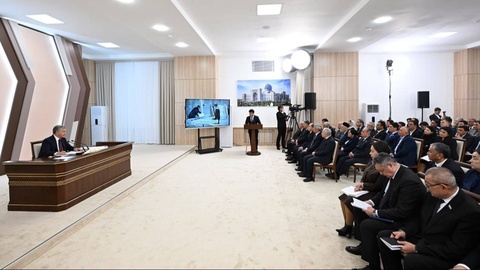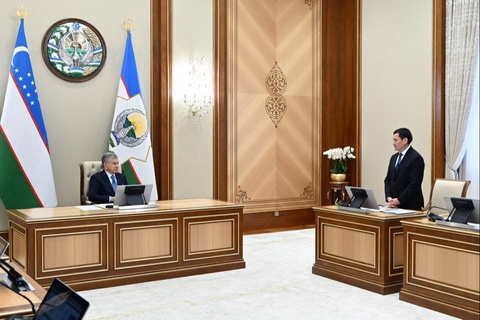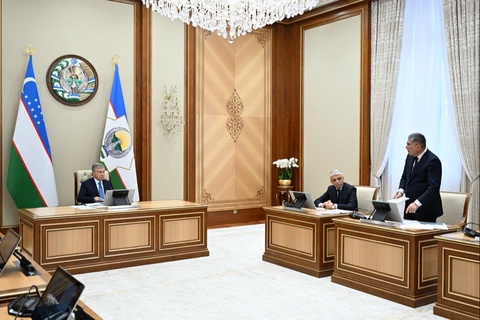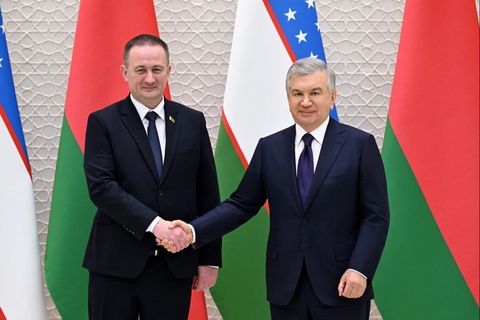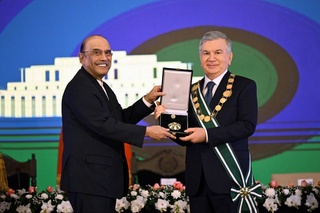“There is a universally acknowledged truth that needs no proof: the development of any state depends on a healthy and educated generation”, the President noted at the beginning of his address. “Therefore, as we build the New Uzbekistan, we must create every condition necessary to nurture a healthy, educated, intellectual, and patriotic youth”.
All efforts in the social sphere are directed toward this goal. Over the past seven years, preschool and school education funding has increased sevenfold. This year, 60 trillion UZS have been allocated. Approximately 1 million new school places and 1.5 million kindergarten places have been created.
According to qualification criteria, language proficiency, the new evaluation system, and participation in subject Olympiads, more than ten types of bonuses have been introduced for teachers. As a result, 60,000 educators now receive salaries ranging from 8 to 12 million UZS.
The salaries of kindergarten teachers have increased by 65 percent, reaching the level of schoolteachers’ wages. Starting from the new academic year, the salaries of school principals, their deputies, and heads of kindergartens will exceed 7 to 10 million UZS.
Educational programs are being aligned with advanced international standards, textbooks are being updated, and modern equipment is being supplied to schools. Teachers are now expected to master new teaching methods and provide students with high-quality knowledge. To support this, the quality of higher education in pedagogical fields must be improved.
Issues related to youth vocational training, proper upbringing, and protection from harmful influences also remain highly relevant.
All areas within this field were thoroughly analyzed at the meeting, and priority tasks were identified. Initiatives aimed at elevating school education to a new level were proposed.
Particular attention was given to the system of teacher training and professional development. In this regard, the National Institute of Pedagogical Excellence named after Abdulla Avloni, and its 13 regional centers have been reorganized. The Nizami University has been transformed into the National Pedagogical University, and its rector now concurrently serves as Deputy Minister for Human Resource Development. A Center for Pedagogical Excellence and International Assessment has also been established.
These new capacities will now serve as the basis for fundamentally transforming all pedagogical universities. For example, the Termez Pedagogical Institute will replace its current faculties with six schools focused on exact sciences, natural sciences, social sciences, philology, applied sciences, and preschool and primary education.
The number of subjects will be optimized from 20 to 15, and the number of academic disciplines will be reduced from 31 to 17, resulting in a 20 percent decrease in academic workload. Nearby schools will serve as practical training bases for the institute.
This year, twenty faculty members from the institute who hold foreign language certificates will be sent for internships to countries such as the United Kingdom, Germany, and Singapore. Within three years, all faculty members will undergo training abroad. Professional development and educational services at the world’s top 100 universities will be arranged through direct contracts.
The activities of regional professional development centers will also be expanded. Educators will be retrained using advanced programs from the United States, the United Kingdom, Singapore, and Germany.
In addition, designated lead schools will be identified for each of the 17 general education subjects. A teacher from each lead school will undergo advanced training in their respective subject area at a professional development center based on international programs and will be granted the trainer status. These trainers will then instruct 25 leading teachers in their region. In turn, these leading teachers will be responsible for enhancing the qualifications of other educators within their schools.
Furthermore, university, center, and school faculty members will be sent abroad for professional development.
Currently, private universities offer broad opportunities. However, 70 percent of students in pedagogical fields are enrolled in preschool education, primary education, and philology. Not a single institution trains teachers in chemistry, biology, or physics. Meanwhile, there is a shortage of teachers in exact and natural sciences in schools.
Therefore, from now on, pedagogical programs at private universities will align with those offered by state institutions. The knowledge of both educators and students will be assessed through external evaluations. This approach will ensure quality control over teacher training in non-state higher education institutions.
The Head of State paid special attention to the education of gifted students at prestigious international universities. He emphasized that Uzbekistan’s children are highly talented and that it is essential to guide them properly and prepare them purposefully.
To this end, a Presidential National Program for Gifted Youth will be launched, and the Al-Beruni International School will be established. Sixty students from the 8th grade will be selected and provided with targeted preparation for admission to top-ranked universities.
In addition, 208 advisors from the Presidential and specialized schools will be assigned to general education schools. These advisors will annually select 3,000 of the most promising students and prepare them for admission to U.S. universities such as Harvard, Yale, Columbia, Cornell, and others.
The foundation for a desire for knowledge lies in preschool education. Currently, 7,000 public and more than 31,000 private kindergartens operate in the country. 96 percent of six-year-old children are enrolled in preparatory groups. This figure is expected to reach 100 percent next year.
In the future, preschool and primary education programs will be synchronized based on advanced international practices. To achieve this, curricula will be developed to teach preschoolers critical and creative thinking in mathematics, natural sciences, and technology.
A professional certification system will also be introduced to enhance preschool educators’ qualifications, skills, and psychological preparedness.
Measures to organize meaningful leisure activities for schoolchildren were outlined at the meeting.
To this end, the “Barkamol Avlod” schools, the “Yoshlik” sports society, and the Student Youth Center will be integrated into a unified system. These facilities will be renovated and equipped according to modern standards, and new clubs will be established in areas such as foreign languages, artificial intelligence, programming, and animation.
A new system for promoting tourism among schoolchildren will be introduced. Children’s tourist centers with a capacity of 100 places each will be established at the “Barkamol Avlod” centers in Karakalpakstan, Khorezm, Samarkand, Bukhara, and the capital. Annually, trips across Uzbekistan will be organized for one million schoolchildren.
Protecting children from harmful information is an issue of concern to all. In this regard, in accordance with a Presidential resolution, a Center for the Development of Children’s Content has been established under the Ministry of Preschool and School Education. The center will commission national content from local authors and organize training for specialists in this field.
Tasks have also been set to engage children in summer recreation and meaningful activities, including organizing sports competitions, intellectual games, and art evenings.


